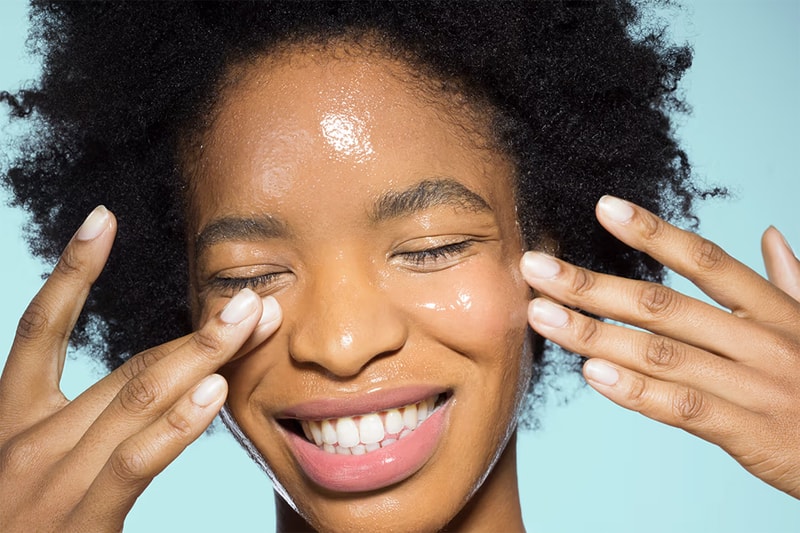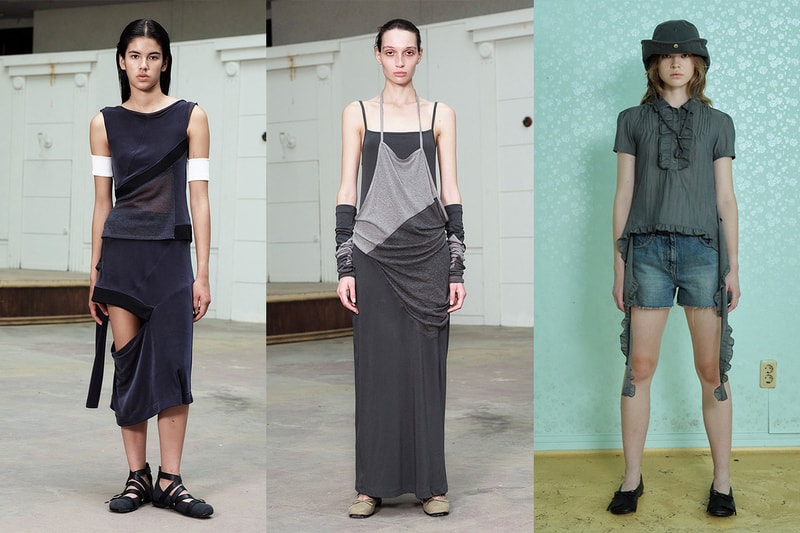Skincare Is In Its Peptide Era
info@hypebae.com (Hypebae) Fri, 18 Apr 2025 Hypebae
It's rare for a new ingredient to break into the skincare world and earn the stamp of approval from experts — but peptides, those mighty amino acid chains, are quickly securing their place as a routine essential. Once reserved for the dermatology labs, this product is now front and center in every beauty editor's top shelf, quietly becoming the hero ingredient for skin repair, firming and barrier support.
So, what exactly are peptides and why is everyone obsessed with them? We tapped three experts — a doctor, esthetician and nurse practitioner — to get the lowdown.
What Are Peptides?
"Peptides are short chains of amino acids that tell your skin what to do," says Audrey Matney of 123 Beauty Lab. "Think of them as the skin's text messages: 'Hey, make more collagen. Calm that inflammation. Hold onto that moisture.'"
Eric Nietzel-Leone, an aesthetic nurse practitioner, breaks it down further. "When these amino acids link together in short chains, they form peptides." When your skin experiences damage or begins to age, peptides signal the body to repair, regenerate and replenish collagen. Skincare with peptides mimics that same internal process, encouraging your skin to rebuild itself from within.
"This is why peptides are often included in skincare products. Essentially, peptides function in skincare products by supporting our natural protein production," explains Dr. Carlos Rodriguez, primary care doctor and medical director of Skinney Medspa.
Types of Peptides and What They Do
There's no one-size-fits-all approach when it comes to peptides. Matney, Nietzel and Rodriguez break it down below.
Signal peptides: Boost collagen and elastin for firmness
Carrier peptides: Deliver minerals to enzymes and support skin repair
Neuropeptides: Relax muscle contractions and give the skin a Botox-like effect
Enzyme-inhibitor peptides: Slow down collagen breakdown
Hydrating peptides: Pull in moisture, lock it in
Why the Renewed Interest?
"Peptides have become a buzzword in the beauty industry recently because they offer real results without the harsh side effects," says Rodriguez. "As our understanding of skin biology has evolved, peptides are standing out for their ability to target specific concerns like aging and texture at a cellular level." Matney adds, "Peptides aren't fluff ingredients. With all the skin tech booming, peptides are finally having their moment."
For Nietzel, the popularity is tied to the public's increased interest in wellness. "Peptides are hitting the market at the same time as more people are focusing on health and longevity."
How Do Peptides Compare to Other Skincare Ingredients?
Peptides stack up well next to actives like retinol and vitamin C. "Peptides are generally gentler and better tolerated than retinol," says Nietzel. "While retinol tells your skin to refresh and shed old cells, peptides help your skin repair and focus on long-term health." Peptides help strengthen the skin's moisture barrier, making them perfect companions to hydrators like hyaluronic acid.
"Peptides are gentler than actives, making them ideal for sensitive skin," states Rodriguez.
Who Should Use Peptides?
"Peptides are great for aging, sensitive or dehydrated skin," says Rodriguez. "They're a smart pick for long-term skin health." Nietzel's favorite part of the peptide is its versatility. "[Everyone] can benefit from the use of peptides."
How to Spot an Effective Peptide
So, how do you know a peptide product is legitimate and worth it? "To spot an effective peptide product, look for ingredients ending in 'peptide' like palmitoyl tripeptide, acetyl hexapeptide or copper peptide," says Rodriguez. "It's also a good sign if peptides are listed higher up on the ingredient list." Nietzel agrees and adds a packaging tip to watch out for. "Peptides can break down when exposed to light and air — look for opaque, air-tight containers."
Matney suggests scanning the INCI List (a smart digital decoder for skincare products) to "make sure it's not just marketing fluff."
How to Add a Peptide to Your Skincare Routine
"Peptides are like the easy-going best friend of your skincare lineup," says Nietzel. "They pair with hydrators like hyaluronic acid, vitamin C and niacinamide." His one warning is to avoid combining them with strong acids like AHAs or BHAs. Matney agrees, asking her clientele to stay clear of low-pH acids that can potentially destabilize the power of the peptide.
Despite the caution, Rodriguez assures us that there is a way to get everything done in a routine. "You can use acids and peptides at different times of the day or alternate them in your routine," he suggests.
The Future of Peptides
Skincare is getting smarter and peptides are leading the way. "Peptide technology is in its early stages and I think we're just beginning to see its potential," says Nietzel. "We're moving towards peptides that can be custom-designed to mimic the body's natural signals with even more precision."
Rodriguez is also excited about innovation that is incoming. "Peptides are starting to show up in everything from supplements to injectables and even post-procedure care. They're becoming part of a holistic approach to skincare and wellness."
Matney is ready for smart delivery technology like encapsulation, AI-formulated peptide blends and peptides that target specific gene expressions. "Skincare's getting surgical — with zero downtime," she says.
While you're here, check out our round-up of spring hair trends.







